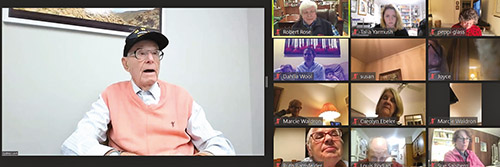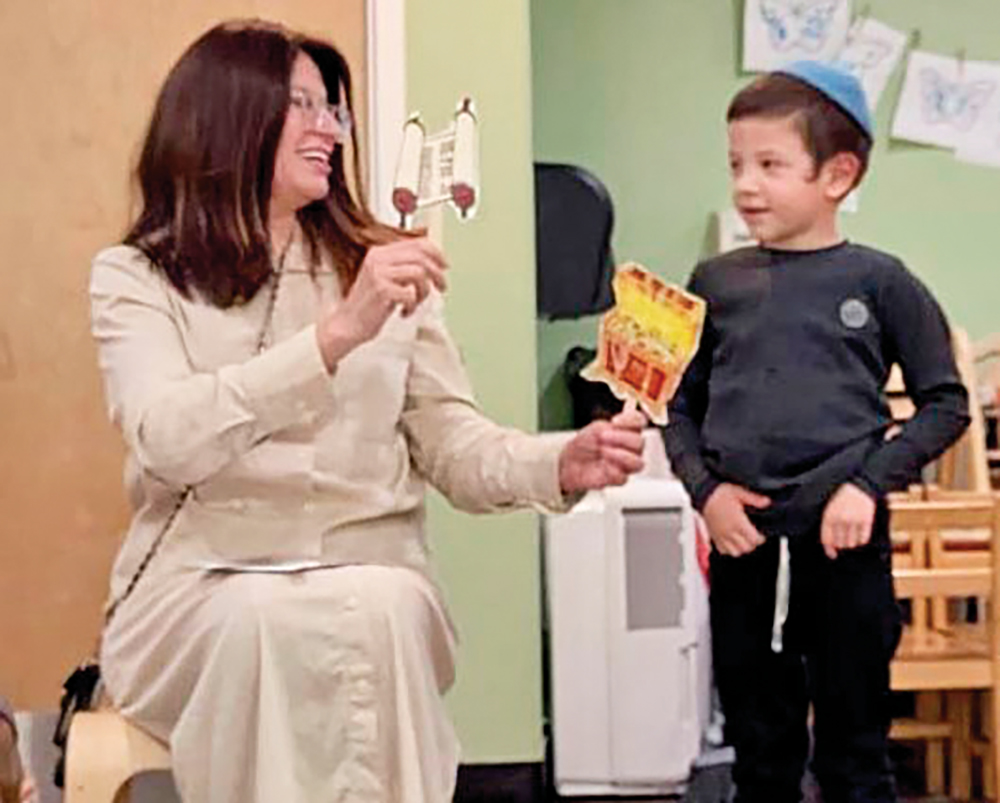
Born in 1924 and raised in Philadelphia, Sydney Levit was 20 years old when he served under General Patton in World War II. Levit raised his family in Morristown and now lives part-time in Aventura, Florida. On Monday night, November 14, he joined a group of 90 audience members on Zoom to recall his story in honor of Veteran’s Day. The program was sponsored by Jewish Historical Society of Greater MetroWest.
Levit served as a pilot with the 17th Airborne Division, 193rd Glider Infantry Regiment, Company A. World War II was in its final months and Levit was undergoing training in England when the news hit that the Germans had launched an offensive that prompted the Battle of the Bulge in Belgium. Levit and his company were rushed to the thick of the battle.
“We all suffered from frozen feet and frozen hands,” he recalled. Historians have noted that some members of the US Army fought the Germans while waist deep in snow. He said the infamous battle at Bastogne was the scariest part of his war experience.

But he did remember a moment during the battle that wasn’t all bad. It was December 24, 1944. The battle was on hold for the holiday, and the Germans all started building bonfires, so the Americans did too. “They started singing,” he said. And all of a sudden, across the blood-covered frozen terrain, Germans and Americans were all singing together.
The next day, the bloody battle resumed. The 17th Airborne was outnumbered. The 2,250 yards of narrow road northeast of Bastogne became known as “Dead Man’s Ridge.”
Levit, Purple Heart recipient, is one of the survivors of the “Dead Man’s Ridge Walk.” He retold how the 17th Airborne attack on the German line began with about 130 soldiers and ended with 16 survivors. “I met wonderful men who were in my group. Some of them didn’t make it,” Levit said. “I was very, very lucky.”
Levit described going back to Bastogne 77 years later. He said the local men and women thanked him for his service and showered the returning Allied soldiers with gifts.
He also had the experience of liberating a small concentration camp in Poland, where he said they deloused all of the women. Levit quieted a bit, seemingly reticent to continue speaking about what must have been a traumatic time.
Karen Auerbach Bocaletti, the program manager for the Jewish Historical Society, who sat next to Levit, asked him about his experience being Jewish in the army.
“I was proud of being Jewish. And they all knew,” Levit said. “When I was in London, I would go to synagogue.” No one he served with had ever met a Jew before, he said, “but it was never a problem.”
“To what can you attribute your long life and good attitude?” Bocaletti asked.
“I never smoked, I was never a big eater, I exercised and I ate a lot of ice cream. I still do.”
Levit has three children, six grandchildren, and 11 great-grandchildren.
By Talia Liben Yarmush














